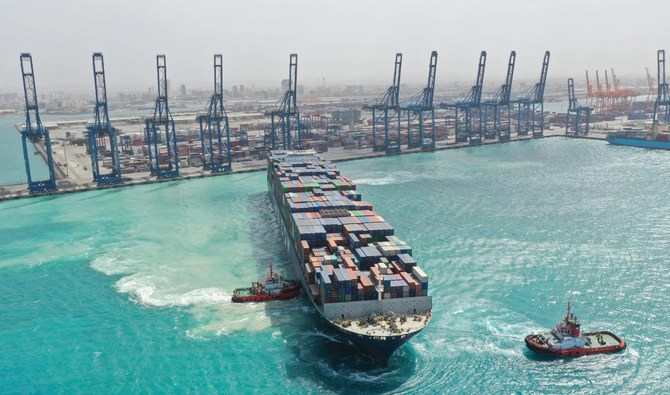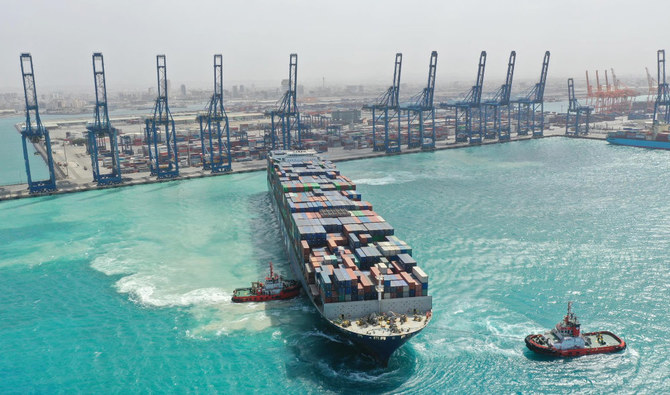DAMMAM: The 2022 Saudi Maritime Congress will focus on the revolution in the shipping and logistics industry — not just for Saudi Arabia but for the Gulf Cooperation Council.
The event is scheduled to take place on Sept. 28-29 in Dammam, along with an exhibition with more than 50 exhibitors. The SMC is the largest global shipping logistics event in Saudi Arabia.
This will bring together the leading companies in the maritime and logistics sector to showcase some of their most cutting-edge technology.
The third of the SMC events will focus on how to increase digitalization and the use of applications and big data to improve the sector — for instance battery-operated vessels, advanced sensors on board ships, machine learning, and systems powered by artificial intelligence.
Data and technology are essential components to maximize the industry’s operational efficiency and catalyze its drive toward decarbonization.
Chris Greenwood, Regional director of business development for the Middle East and Africa at ABS
The regional director of business development for the Middle East and Africa at ABS, Chris Greenwood, said: “Data and technology are essential components to maximize the industry’s operational efficiency and catalyze its drive toward decarbonization.”

Chris Greenwood, Regional Director of Business Development, Middle East & Africa, ABS.
Leading organizations will also discuss how technology will impact the operational efficiency of the sector, according to Greenwood. He said that during the pandemic, technology played a key part in keeping the industry operational, such as remotely operated underwater vehicles and robots assisting in carrying out inspections certifications.
“So, these solutions are truly valuable to the sector and we must discuss their development and usage in the future for the industry’s operations,” Greenwood said.
In addition to discovering these technological advances, the conference will bring in experts and leaders who will help introduce and educate the sector about the importance of new technologies.
Director of TTMS Gulf Abdul Fahl said: “Sharing our experiences on what we have been able to achieve with the help of digitalization will encourage more companies to embrace digital solutions and will raise the standards of the industry as a whole.”
Fahl said that the maritime industry was already working toward using the changes that were happening in the energy sector. “That is why at the Saudi Maritime Congress, both policymakers and industry leaders will come together to discuss the opportunities within the value chain including latest technologies that would drive maritime further,” he said.
This also falls in line with the Saudi Vision 2030, as it works toward making the country a regional technology hub.
Group director of maritime events, Informa Markets, Chris Morley, said: “Through various digitalization-focused segments, we aim to cement the position of the Kingdom as a regional and global trade hub by enhancing port standards with the help of technology.”
Morley said it was obvious that a reduction in carbon emissions would need more than simply alternate fuels “and would rely heavily on the utilization of data and digital solutions.”




























